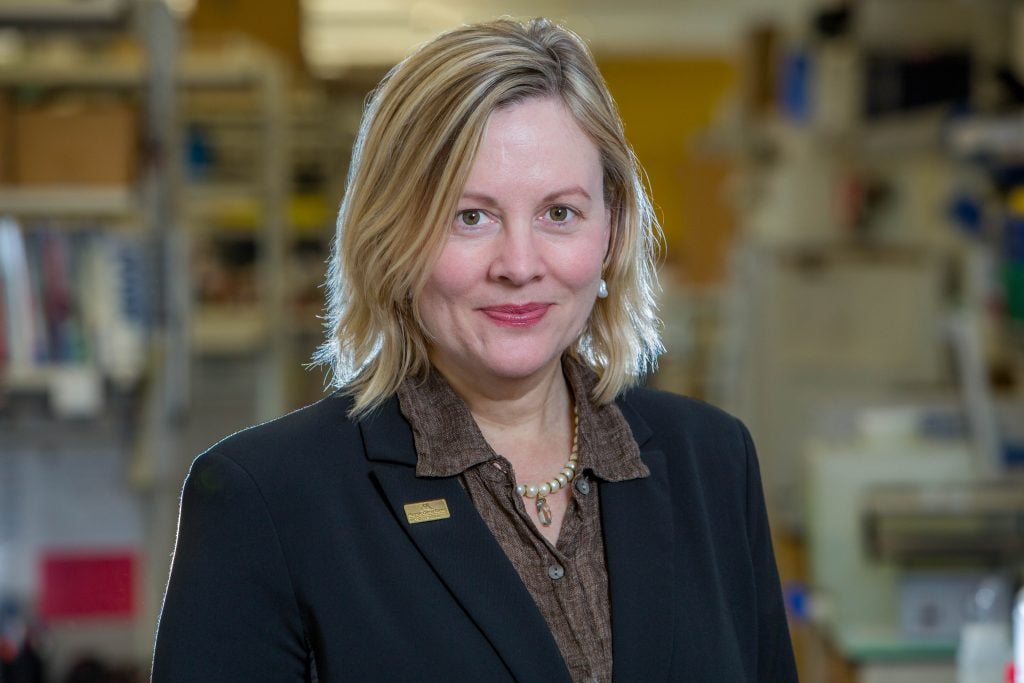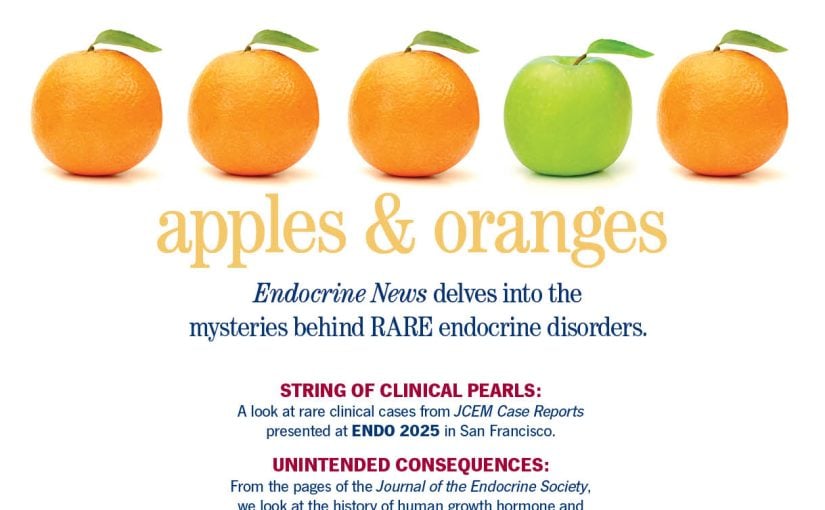
Carol A. Lange, PhD, has been an active member of the Endocrine Society since she attended her very first ENDO in 1996 where she “found her people.” Over 25 years later, she has taken the reins of the Society’s Endocrinology journal this month and tells Endocrine News about her remarkable journey, her advice to new members, and what she hopes to bring to the table as editor-in-chief.
Good news is both welcomed and in high demand these days, and for Carol A. Lange, PhD, professor in the Departments of Medicine and Pharmacology at the University of Minnesota Masonic Cancer Center, the good news came in a double dose this year.
Lange was recognized as a 2020 Endocrine Society Laureate Award recipient for her distinguished service to the Society and the field of endocrinology. An active member since her postdoctoral fellow days in the Kate Horowitz Laboratory in 1996, Lange has attended every ENDO since chairing sessions, reviewing abstracts, judging posters, leading Meet-the-Professor sessions, and serving on the Annual Meeting Steering Committee from 2003 to 2006. She’s also served on the Society’s Scientific Meetings and Educational Programs Committee, the Publications Core Committee, the Laureate Awards Committee, and is currently on the Nominating Committee.
I am excited to add something completely new to Endocrinology. My goal is to attract the very best basic molecular, biochemical, genetic, epigenetic, and cell biology sciences to Endocrinology, including areas not traditionally thought of as purely “endocrinology.”
Through the years, Lange was instrumental in planning the Basic Scientist Track of the Society’s first annual Trainee Day Career Development Workshop in 2007, which is now an ENDO mainstay. She served as the Society’s Basic Science Chair in 2008 and has been a mentor for the Endocrine Society Career Day and a host of the Nuclear Receptors Reception. According to her 2020 Laureate Award article in the March Endocrine News, Lange’s motto continues to be “never say no to ENDO!”
Then in April, she was appointed as the new editor-in-chief of Endocrinology, the Society’s flagship basic science journal. “I’m honored to join Endocrinology’s mission to be the leading source of emerging hormone science and to share this knowledge in a meaningful way with scientists, clinicians and the public,” Lange said in April, adding that she’s dedicated her entire career to understanding the molecular and biochemical underpinnings of hormone action, and looks forward to continuing the journal’s commitment to publishing “fascinating original research and molecular mechanistic studies on endocrine pathways, cells, systems, and diseases.”
Lange also has the distinction of being the Endocrine Society’s first female editor-in-chief when she oversaw Hormones & Cancer in 2011.
Endocrine News spoke with Lange to learn how these accomplishments will further impact her service to the specialty.
Endocrine News: We congratulate you on taking over the helm as editor-in-chief of Endocrinology on July 1. What do you see as the greatest opportunities and challenges for your new role?
Carol Lange: On the one hand, I want to uphold the strong legacy of this long-lived Endocrine Society journal. I realize I have a tough act to follow in the exceptional leadership of our previous editor-in-chief, Dr. Teresa Woodruff. On the other hand, I am excited to add something completely new to Endocrinology. My goal is to attract the very best basic molecular, biochemical, genetic, epigenetic, and cell biology sciences to Endocrinology, including areas not traditionally thought of as purely “endocrinology.” For example, the endocrinology of neuroscience and aging/longevity, mitochondrial biology, metabolism, and nutrition, as well as tissue regeneration and stem cell biology, to name a few. My charge is to strengthen our basic science base and help integrate this effort with the Endocrine Society annual meeting programming by collaboration with Endocrine Society leadership across the science and educational missions.
The global COVID-19 crisis has reaffirmed my belief in the power of teamwork, creative thinking, inclusivity, and a positive “can-do” attitude. Thus, my editorial team and I are standing by to consider all new submissions this year as fast-tracked for rapid review and publication.
EN: There is news that manuscript submissions are on the rise for many science journals as researchers have been shuttered from their laboratories due to COVID-19 and are devoting more time to writing. Is this a similar trend for Endocrinology?
Lange: Yes! In fact, we have seen an approximate 60% increase in submissions beginning in April relative to previous months. I believe scientists have had more time to write while sheltering at home. I wish to help meet the needs of our junior faculty and trainees during these distressing times. The global COVID-19 crisis has reaffirmed my belief in the power of teamwork, creative thinking, inclusivity, and a positive “can-do” attitude. Thus, my editorial team and I are standing by to consider all new submissions this year as fast-tracked for rapid review and publication. As do all Endocrine Society journals, Endocrinology operates on a continuous online publishing model, meaning accepted articles go online for discoverability and citation as soon as they have cleared peer review. We will prioritize manuscripts with trainee authorship and/or from junior faculty laboratories.
EN: The second great honor of the year was your “Distinguished Service” award. What did the recognition mean to you?
Lange: Mostly, I am just really grateful for this award. It serves as an acknowledgement of everything I have been passionate about around advocating for basic scientists as well as fostering the next generation of scientists.
EN: You have been an active member with the Society since your training as a postdoc fellow in 1996. Over the years since, you’ve attended every annual ENDO meeting and served the Society on several committees and leadership roles. What has motivated you to become such an integral part of the Society community?
My charge is to strengthen our basic science base and help integrate this effort with the Endocrine Society annual meeting programming by collaboration with Endocrine Society leadership across the science and educational missions.
Lange: It has been extremely rewarding to me both professionally and personally. After my very first ENDO meeting (San Francisco, 1996) I remember telling my parents that I had “found my people.” Being at the meeting in a new city was energizing and I had so much fun networking and socializing with the people (members) in my field of nuclear receptor science.
EN: What would be your advice to a postdoc fellow today to encourage them to become more active in the Society?
Lange: Go to the meeting every single year. Sit in the front rows and near a microphone during the symposia you attend. Ask questions, be seen, meet people, and interact as much as possible in all the venues. Smile and have fun. In other words, dive in, find your people, and have a blast! Also, be sure to stay an extra day or two to visit the city and enjoy sightseeing while you clear your head, energize, and plan for your next steps once home and back in the lab.
Endocrinology is a global leader in hormone science and research with more than 43,000 citations and 1.9 million article downloads a year. With continuous online-only publication and monthly issues, the first eight pages free for members, no color charges, and article-level Open Access options, Endocrinology accepts format-neutral manuscript submissions and pre-submission inquiries.
—Fauntleroy Shaw is a freelance health editor/writer based in Carmel, Ind. She is a regular contributor to Endocrine News.

